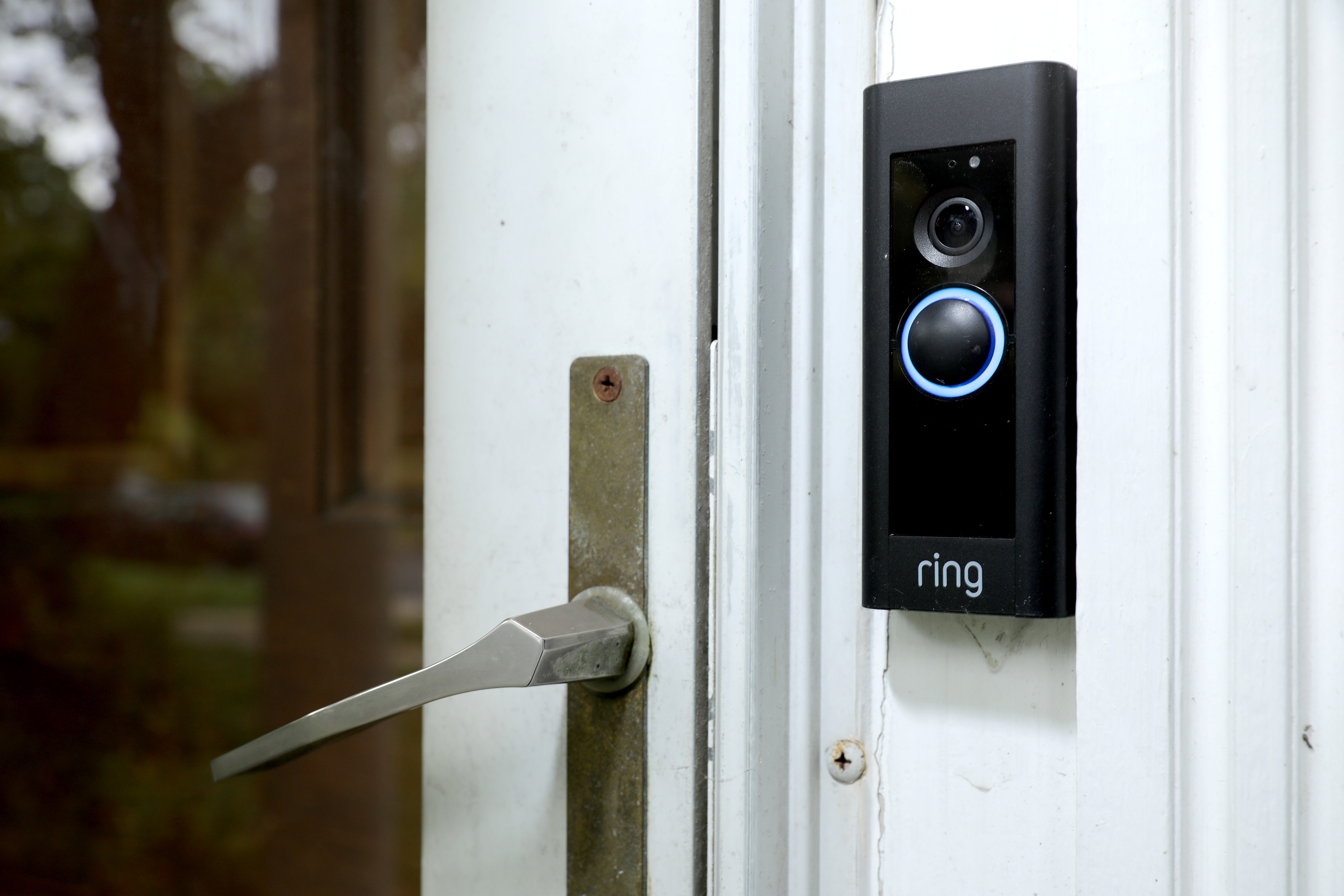Do Ring Cameras Violate Wiretapping Laws? New Hampshire Is About to Find Out

Credit to Author: Todd Feathers| Date: Thu, 30 Jan 2020 13:42:50 +0000
Last July, Timothy Burke was standing outside his sister’s apartment in Rochester, N.H., allegedly firing a pistol at the ground. Words were exchanged—a conversation of obvious interest to the assistant county attorney now prosecuting the case. Then, the 31-year-old allegedly raised his gun and shot his brother Edwin in the arm.
The case, first reported by the New Hampshire Union Leader, rose to a matter of national interest last week, when the prosecutor asked a judge to accept audio recordings of the incident captured by a neighbor’s Ring camera as evidence. Burke’s public defender has opposed the motion, arguing that recordings from home surveillance cameras like Ring violate the state’s wiretapping law, which makes it a felony to audio record someone without their knowledge.
New Hampshire is one of 12 states that require all parties in a conversation to consent to audio recording. And while police have been eager to use video footage from private Ring cameras—urged on by the Amazon-owned company’s aggressive marketing—national criminal defense and civil liberties experts say the audio recordings pass into untested and concerning legal territory.
“I think it’s a real issue, and we at the ACLU have been keen to combat any kind of threat that microphones will become as prevalent in public places as cameras have,” Jay Stanley, a senior policy analyst at the ACLU, told Motherboard. “There are surveillance cameras all over public places in America but almost none of them have microphones because of these wiretapping laws.”
Motherboard contacted a number of other organizations representing civil liberties advocates, prosecutors, and defense attorneys and none were aware of a specific legal precedent to the New Hampshire case. In previous cases dealing with recording public officials, particularly police performing public duties, judges have ruled that the recordings are legal. The question of third-party audio recordings of unwitting private individuals has yet to be answered, though.
“It’s almost been considered up until now fair game that something done outside in public does not hold that right to privacy, but that’s being challenged because at this point we’re being overwhelmed by infringements upon privacy,” Peter Elikann, a defense attorney and former chair of the Massachusetts Bar Association’s criminal justice council, told Motherboard. “It’s like there’s one big digital neighborhood watch going on.”
Like New Hampshire, Massachusetts requires the consent of all parties to a recording.“We’re really at the vanguard, the starting gate of what’s going to be a huge area of law that’s going to be challenged,” Elikann said.
In its guidelines for law enforcement Ring states that the company provides access to device video in response to a warrant, but they do not mention audio recordings, which are enabled by default on Ring devices. And as Motherboard has previously reported, Amazon has coached police departments on ways to access videos without the need for a warrant.
“As privacy and video surveillance laws vary by jurisdiction, we strongly encourage all of our customers to respect their neighbors' privacy and comply with any applicable laws when setting up their Ring device,” the company wrote in a statement to Motherboard, also suggesting that customers place the stickers provided with each product on their house so passersby and visitors know they are being surveilled.
Assistant Strafford County Attorney Emily Garod, who is prosecuting Burke, told Motherboard that when she learned of the Ring audio recording she messaged a state-wide group of prosecutors to ask for advice or examples of similar cases.
“I got a ton of responses back, none of which were helpful, but saying ‘let me know what you get back on this because we have no idea,’” she said. “It’s really interesting, you have people with Ring doorbells on and [depending on the judge’s ruling] they’re basically committing a crime when they record audio.”
A hearing to decide the Ring issue in Burke’s case has been scheduled for February 4th.
Most state wiretapping laws are based on the federal statute, but they differ between requiring one-party consent—where only one member of a conversation must be aware of a recording— and two-party consent, also known as all-party consent.
In Pennsylvania, a two-party consent state, the Philadelphia district attorney’s office considers audio recordings from Ring and other outdoor home surveillance devices admissible evidence, spokeswoman Jane Roh told Motherboard. But she was not aware of any cases in which prosecutors have attempted to introduce such evidence.
In Michigan, a one-party consent state, in order to violate that state’s wiretapping law, a person must “willfully” intercept the communication.
“Ring and other surveillance cameras record events and the significance is discovered later. The owner of the device is not purposefully recording the conversation. It’s not eavesdropping,” Maria Miller, an assistant prosecutor for the Detroit-based Wayne County District Attorney’s office, wrote in an email to Motherboard.
Defense attorneys are liable to argue a different definition of willfulness.
“You know you’re putting the Ring up there. You know it’s going to record everything that happens within its reach. So it’s not unintentional, that’s for sure,” Mike Iacopino, a veteran New Hampshire defense attorney, told Motherboard.
“Right now, I can tell you as a lawyer, that it’s pretty clear that it is [in violation of New Hampshire law] just because of the breadth of the statute,” he said. “I think that with the Rings and some of the other new products out there that are incorporating audio that it’s going to be a big issue.”
This article originally appeared on VICE US.